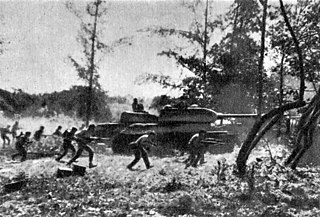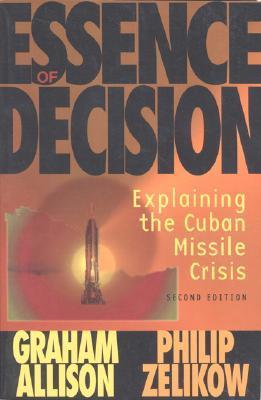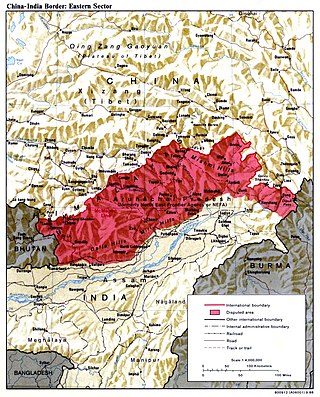| Operation Ortsac | |
|---|---|
| Part of the Cuban Missile Crisis | |
| Location | |
| Planned by | |
| Objective | Invasion of Cuba |
| Date | 1962 |
| Outcome | Rejected |
Operation Ortsac was the code name for a possible invasion of Cuba planned by the United States military in 1962. [1] [2]
| Operation Ortsac | |
|---|---|
| Part of the Cuban Missile Crisis | |
| Location | |
| Planned by | |
| Objective | Invasion of Cuba |
| Date | 1962 |
| Outcome | Rejected |
Operation Ortsac was the code name for a possible invasion of Cuba planned by the United States military in 1962. [1] [2]
The name was derived from then Cuban President Fidel Castro by spelling his surname backwards.
During the Cuban Missile Crisis, upon discovery of SS-4 missiles being assembled in Cuba, the U.S. Government considered several options including a blockade (an act of war under international law, so it was called a "quarantine"), an airstrike, or a military strike against the Cuban missile positions.
The nuclear weapons supplied from the Soviet Union could be destroyed by a military strike with the help of substantial air raids before they were operational. The plans were rejected in favor of a blockade, as U.S. President John F. Kennedy was against a sneak attack.
It can be argued that an American attack could have resulted in the deaths of Soviet soldiers and lead to a retaliatory strike on the United States. Such moves would likely have resulted in World War III.
An airstrike would probably have failed to destroy in entirety all of the missiles, with many of the positions hidden to U-2 reconnaissance planes, and would also have failed to prevent Soviet Premier Nikita Khrushchev from sending further reinforcements to Cuba, making a full blown military strike deposing Castro necessary to prevent further missiles from being placed on Cuba.
After the collapse of the Soviet Union, the Russians revealed that the medium-range missiles on Cuba were already almost fully operational at that time, and operational command of smaller, battlefield-tactical nuclear missiles also present had, incredibly, been given to field officers, though that authorization was quickly rescinded.
Cuban Invasion Force (Corps)

The Cuban Missile Crisis, also known as the October Crisis in Cuba, or the Caribbean Crisis, was a 13-day confrontation between the governments of the United States and the Soviet Union, when American deployments of nuclear missiles in Italy and Turkey were matched by Soviet deployments of nuclear missiles in Cuba. The crisis lasted from 16 to 28 October 1962. This confrontation is widely considered the closest the Cold War came to escalating into full-scale nuclear war.

In nuclear strategy, a first strike or preemptive strike is a preemptive surprise attack employing overwhelming force. First strike capability is a country's ability to defeat another nuclear power by destroying its arsenal to the point where the attacking country can survive the weakened retaliation while the opposing side is left unable to continue war. The preferred methodology is to attack the opponent's strategic nuclear weapon facilities, command and control sites, and storage depots first. The strategy is called counterforce.

Mutual assured destruction (MAD) is a doctrine of military strategy and national security policy which posits that a full-scale use of nuclear weapons by an attacker on a nuclear-armed defender with second-strike capabilities would result in the complete annihilation of both the attacker and the defender. It is based on the theory of rational deterrence, which holds that the threat of using strong weapons against the enemy prevents the enemy's use of those same weapons. The strategy is a form of Nash equilibrium in which, once armed, neither side has any incentive to initiate a conflict or to disarm.

World War III, also known as the Third World War, is a hypothetical future global conflict subsequent to World War I (1914–1918) and World War II (1939–1945). It is widely assumed that such a war would involve all of the great powers, like its predecessors, as well as the use of nuclear weapons or other weapons of mass destruction, surpassing all prior conflicts in geographic scope, devastation and loss of life.

The United States and a coalition of six Caribbean countries invaded the small island nation of Grenada, 100 miles (160 km) north of Venezuela, at dawn on 25 October 1983. Codenamed Operation Urgent Fury by the U.S. military, it resulted in military occupation within a few days. It was triggered by strife within the People's Revolutionary Government, which led to the house arrest and execution of the previous leader and second Prime Minister of Grenada, Maurice Bishop, and to the establishment of the Revolutionary Military Council, with Hudson Austin as chairman. Following the invasion there was an interim government appointed, and then general elections held in December 1984.

The Bay of Pigs Invasion was a failed military landing operation on the southwestern coast of Cuba in April 1961 by the United States of America and the Cuban Democratic Revolutionary Front (DRF), consisting of Cuban exiles who opposed Fidel Castro's Cuban Revolution, clandestinely and directly financed by the U.S. government. The operation took place at the height of the Cold War, and its failure influenced relations between Cuba, the United States, and the Soviet Union.
Operation Anadyr was the code name used by the Soviet Union for its Cold War secret operation in 1962 of deploying ballistic missiles, medium-range bombers, and a division of mechanized infantry to Cuba to create an army group that would be able to prevent an invasion of the island by United States forces. The plan was to deploy approximately 60,000 personnel in support of the main missile force, which consisted of three R-12 missile regiments and two R-14 missile regiments. However, part of it was foiled when the United States discovered the plan, prompting the Cuban Missile Crisis.

The nuclear arms race was an arms race competition for supremacy in nuclear warfare between the United States, the Soviet Union, and their respective allies during the Cold War. During this same period, in addition to the American and Soviet nuclear stockpiles, other countries developed nuclear weapons, though no other country engaged in warhead production on nearly the same scale as the two superpowers.

The Single Integrated Operational Plan (SIOP) was the United States' general plan for nuclear war from 1961 to 2003. The SIOP gave the President of the United States a range of targeting options, and described launch procedures and target sets against which nuclear weapons would be launched. The plan integrated the capabilities of the nuclear triad of strategic bombers, land-based intercontinental ballistic missiles (ICBM), and sea-based submarine-launched ballistic missiles (SLBM). The SIOP was a highly classified document, and was one of the most secret and sensitive issues in U.S. national security policy.

Thirteen Days is a 2000 American historical political thriller film directed by Roger Donaldson. It dramatizes the Cuban Missile Crisis of 1962, seen from the perspective of the US political leadership. Kevin Costner stars as top White House assistant Kenneth P. O'Donnell, with Bruce Greenwood featured as President John F. Kennedy, Steven Culp as Attorney General Robert F. Kennedy, and Dylan Baker as Secretary of Defense Robert McNamara.

Tactical Air Command (TAC) is an inactive United States Air Force organization. It was a Major Command of the United States Air Force, established on 21 March 1946 and headquartered at Langley Air Force Base, Virginia. It was inactivated on 1 June 1992 and its personnel and equipment absorbed by Air Combat Command (ACC).

Essence of Decision: Explaining the Cuban Missile Crisis is book by political scientist Graham T. Allison analyzing the 1962 Cuban Missile Crisis. Allison used the crisis as a case study for future studies into governmental decision-making. The book became the founding study of the John F. Kennedy School of Government, and in doing so revolutionized the field of international relations.

The Cuban Project, also known as Operation Mongoose, was an extensive campaign of state-sponsored terrorist attacks against civilians, and covert operations, carried out by the U.S. Central Intelligence Agency in Cuba. It was officially authorized on November 30, 1961, by U.S. President John F. Kennedy. The name "Operation Mongoose" was agreed to at a White House meeting on November 4, 1961.

After the establishment of diplomatic ties with the Soviet Union after the Cuban Revolution of 1959, Cuba became increasingly dependent on Soviet markets and military aid and was an ally of the Soviet Union during the Cold War. In 1972 Cuba joined the Council for Mutual Economic Assistance (Comecon), an economic organization of states designed to create co-operation among the communist planned economies, which was dominated by its largest economy, the Soviet Union. Moscow kept in regular contact with Havana and shared varying close relations until the end of the Soviet Union in 1991. Cuba then entered an era of serious economic hardship, the Special Period.

Resurrection Day is a 1999 novel written by Brendan DuBois. In its alternate history, the Cuban Missile Crisis escalated into a full-scale war, the Soviet Union is devastated, and the United States has been reduced to a third-rate power that relies on the United Kingdom for aid. The novel won the Sidewise Award for Alternate History that year.
Dead Hand, also known as Perimeter, is a Cold War–era automatic or semi-automatic nuclear weapons control system that was constructed by the Soviet Union. The system remains in use in the post-Soviet Russian Federation. An example of fail-deadly and mutual assured destruction deterrence, it can initiate the launch of the Russian intercontinental ballistic missiles (ICBMs) by sending a pre-entered highest-authority order from the General Staff of the Armed Forces, Strategic Missile Force Management to command posts and individual silos if a nuclear strike is detected by seismic, light, radioactivity, and pressure sensors even with the commanding elements fully destroyed. By most accounts, it is normally switched off and is supposed to be activated during times of crisis; however, as of 2009, it was said to remain fully functional and able to serve its purpose when needed. Accounts differ on whether the system, once activated by the country's leadership, will launch missiles fully automatic or if there is still a human approval process involved, with newer sources suggesting the latter.

The following events occurred in October 1962:
Alexander Ivanovich Alexeyev was a Soviet intelligence agent who posed first as a journalist and later a diplomat. His arrival in Havana on 1 October 1959 inaugurated a new era in Cuba–Soviet Union relations. Alexeyev was later appointed as the Soviet Ambassador to Cuba, and played a vital role in easing tensions during the Cuban Missile Crisis.

Operation Pocket Money was the title of a U.S. Navy Task Force 77 aerial mining campaign conducted against the Democratic Republic of Vietnam from 9 May 1972, during the Vietnam War. Its purpose was to halt or slow the transportation of supplies and materials for the Nguyen Hue Offensive, an invasion of the Republic of Vietnam, by forces of the People's Army of Vietnam (PAVN), that had been launched on 30 March. Pocket Money was the first use of naval mines against North Vietnam.

A nuclear close call is an incident that might have led to at least one unintended nuclear detonation or explosion, but did not. These incidents typically involve a perceived imminent threat to a nuclear-armed country which could lead to retaliatory strikes against the perceived aggressor. The damage caused by international nuclear exchange is not necessarily limited to the participating countries, as the hypothesized rapid climate change associated with even small-scale regional nuclear war could threaten food production worldwide—a scenario known as nuclear famine. There have also been a number of accidents involving nuclear weapons, such as crashes of nuclear armed aircraft.